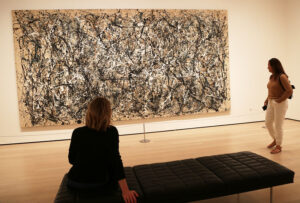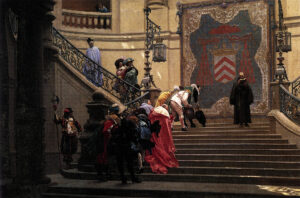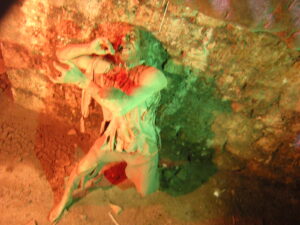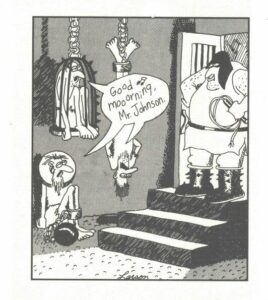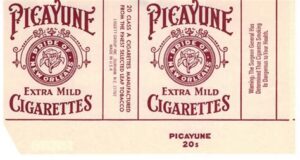 I love this word. I love the idea that New Orleans named a newspaper after it. There’s a Mississippi town called Picayune that I should visit, and of course I love it that Mark Twain / Sam Clemens used the word and has also been skewered with it. In this recent example in The Atlantic by Graeme Wood, he describes a new biography focusing on Clemens’ difficult personal life and financial disasters thus: “His credulity led to misadventures the details of which are so picayune that Chernow’s emphasis on them can be maddening.” No detail about Clemens’ life can be maddening to me: I immediately ordered a copy of Chernow’s giant biography, Mark Twain.
I love this word. I love the idea that New Orleans named a newspaper after it. There’s a Mississippi town called Picayune that I should visit, and of course I love it that Mark Twain / Sam Clemens used the word and has also been skewered with it. In this recent example in The Atlantic by Graeme Wood, he describes a new biography focusing on Clemens’ difficult personal life and financial disasters thus: “His credulity led to misadventures the details of which are so picayune that Chernow’s emphasis on them can be maddening.” No detail about Clemens’ life can be maddening to me: I immediately ordered a copy of Chernow’s giant biography, Mark Twain.
What makes something picayune? We have an answer! The OED notes a French / Occitan etymology but Southern US origin with an 1806 first recorded use, “One can’t buy anything [at New Orleans] for less than a six cent piece, called a picayune.” Over time, the term morphed from a small amount of money to a trifling amount to a worthless person. Thus it became a metaphor for things or people of no value.
We can name many such persons, some with considerable influence (I don’t care for influences nor do I wish to be one). In any case, despite the rise of many picayune people and pastimes, our word continues a gradual decline in usage.
Send words and metaphors my way by e-mailing me (jessid -at- richmond -dot- edu) or leaving a comment below.
See all of our Metaphors of the Month here and Words of the Week here.
Image: though blocked by the picayune I.T. rules on campus, I managed to outsmart them and got this form cigarettecollector.net. I dislike cigs, but not cigars. They will yank my final stogie from my tobacco-stained, dead lips.






